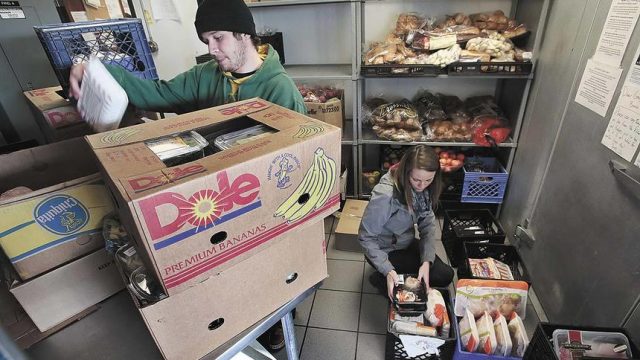Stop Touting the Economic Benefits of Food Stamps

“Cuts to SNAP would increase strain on local food bank resources,” reads a headline over a letter to the editor from Great Plains Food Bank CEO Steve Sellent and his board members.
The argument, as I’m sure you’ve gathered, is that we ought not reduce federal spending on food stamps.
Of course, it seems we’re already reducing the use of food stamps through an improving economy. In mid-July it was reported that enrollment in the Supplemental Nutrition Assistance Program (SNAP) was down to its lowest level in seven years. There are 1.1 million fewer Americans enrolled in the program than there were in 2010.
But Trump is looking for reforms. He wants to cut federal funding for the program, asking states to match up to 20 percent of federal funding and implement work requirements.
These are the policy changes Sellent and his board object to. And we can have a debate about that. Personally I’d like to see more private charity, and less reliance on government programs, but I’m on the fence as to whether or not Trump’s reforms in particular are the right vehicle.
One argument Sellent and his board made, though, is a bit ridiculous:
By giving families the ability to purchase food locally, SNAP also provides an important economic boost to rural and urban communities. In 2016 alone, SNAP households spent roughly $79 million in stores throughout North Dakota, generating economic activity in their local communities.
This reminds me of the time Obama Ag Secretary Tom Vilsack claimed food stamps are an economic stimulus.
“Obviously, [the food stamp program]’s putting people to work,” he said. “[W]hen you talk about the SNAP program or the food stamp program, you have to recognize that it’s also an economic stimulus…It’s the most direct stimulus you can get into the economy during tough times.”
Absurd.
Government spending on food stamps, or any program for that matter, is only a stimulus if you fail to account for the economic impacts of taking money away from people to pay for the programs in the first place.
Is commerce created when people spend their food stamps dollars? Sure. But it’s also destroyed when people are taxed to pay for food stamps.
You can’t tout one and ignore the other.
If you want to defend food stamps policy on the grounds that it’s a needed safety net, then fine. That’s a valid argument. But suggesting that it’s economic stimulus is economically illiterate.




